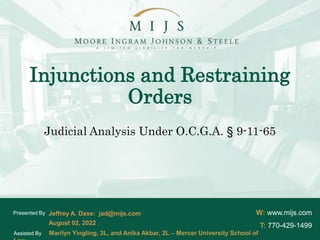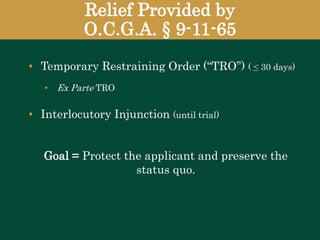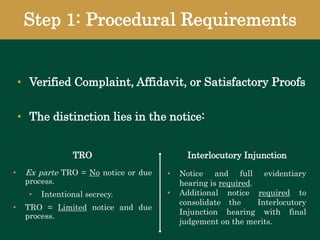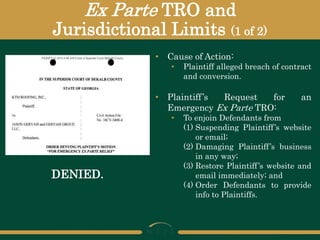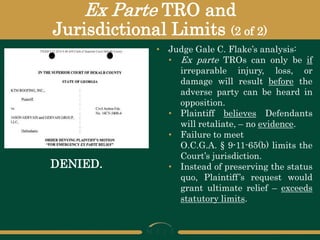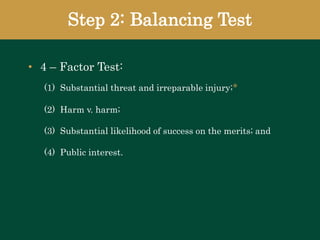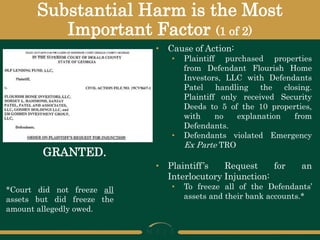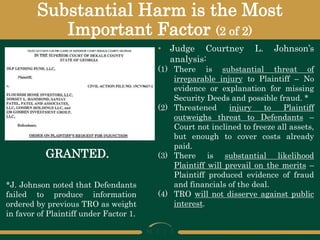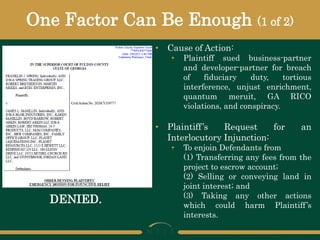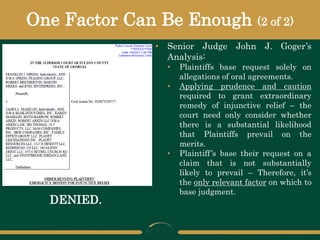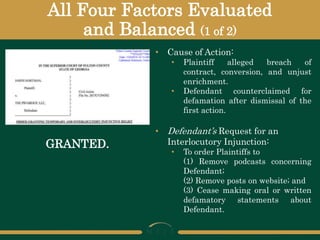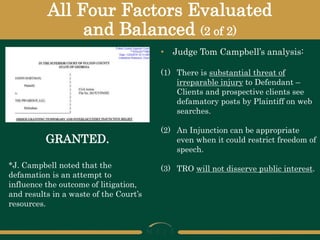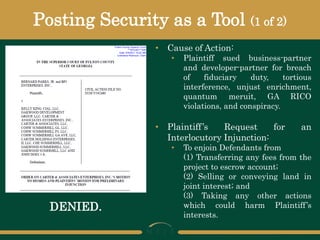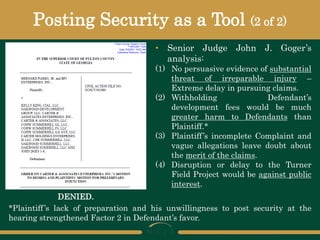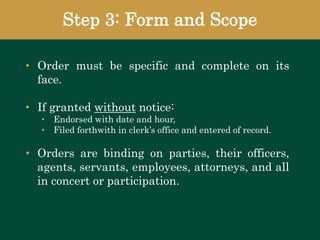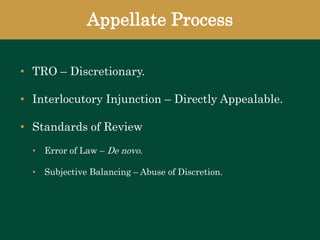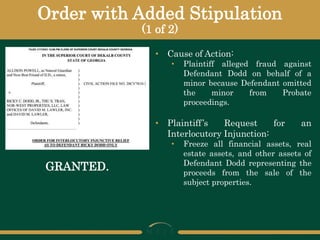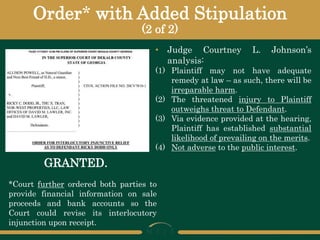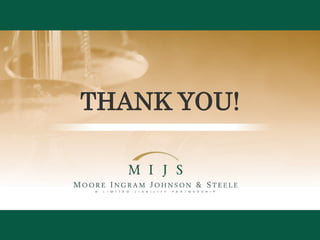This document summarizes Georgia law on injunctions and restraining orders under O.C.G.A. § 9-11-65. It discusses the different types of injunctions (temporary restraining orders and interlocutory injunctions), procedural requirements, the four factor balancing test courts use to determine if an injunction is warranted, and examples of courts granting and denying injunctions based on their analysis of the factors. Key points include that substantial threat of irreparable harm is the most important factor, a single factor like likelihood of success on the merits can be enough to deny an injunction, and courts may add stipulations like requiring parties to provide financial information.
